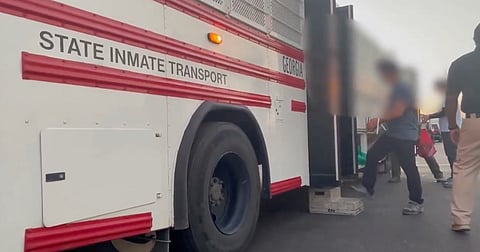

South Korea is actively addressing the detention of over 300 of its citizens following a major U.S. immigration raid at a Hyundai-LG Energy Solution battery plant in Georgia.
The raid, which occurred on September 4, 2025, targeted a $4.3 billion electric vehicle battery project, detaining 475 workers, most of whom were South Korean nationals.
The operation, the largest single-site enforcement action by the U.S. Department of Homeland Security, has strained ties between the U.S. and South Korea, a key ally that recently pledged significant investments in the U.S.
South Korea’s government announced on September 7, 2025, that it had finalized negotiations with the U.S. for the release of the detained workers.
Kang Hoon-sik, chief of staff for President Lee Jae Myung, stated that a chartered plane would be arranged to bring the workers home once administrative processes are completed.
Foreign Minister Cho Hyun is traveling to Washington on September 8 to meet U.S. Secretary of State Marco Rubio to discuss the workers’ release and future visa arrangements.
“From the beginning, we negotiated with the premise that there should be no personal disadvantage (to the detained workers),” Cho said at a parliamentary hearing.
The raid has highlighted challenges foreign companies face in finding qualified U.S. workers, prompting discussions on visa policies.
South Korean lawmakers noted that some detained workers may have violated terms of a 90-day visa waiver program or B-1 temporary business visas.
President Lee emphasized that South Korean nationals’ rights and companies’ economic activities should not be unfairly impacted by U.S. enforcement actions.
South Korea’s Foreign Ministry expressed “concern and regret” over the incident and is pushing for streamlined visa processes to support future business investments.
The timing of the raid, just 10 days after a meeting between Presidents Lee and Trump to strengthen business ties, has caused dismay in Seoul.
President Trump suggested a potential arrangement for South Korean workers to train U.S. citizens in specialized fields like battery manufacturing, stating, “If you don’t have people in this country right now that know about batteries, maybe we should help them along.”
As South Korea prepares to fly its workers home, it is also advocating for their ability to return to the U.S. to continue contributing to significant investment projects.